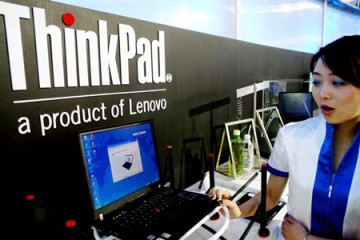 A Daisy Corporate Services report has revealed that outdated IT equipment wastes money and harms the environment.
A Daisy Corporate Services report has revealed that outdated IT equipment wastes money and harms the environment.
The study, Faster, greener, cheaper: Dealing with IT Infrastructure Complexity in a Hybrid Cloud World, has exposed a massive obstacle in legacy infrastructure, which is gobbling up power and spewing out carbon.
As well as being a drain on the grid, the old gear burns a hole in the pocket, with cash spent on keeping the machines running. The IT industry has a chance to sell new and improved products, but this is more than just a sales pitch – it’s about saving the planet and cutting costs.
The report showed a strong desire by customers to go green and be more eco-friendly. Nearly nine of ten IT bosses said sustainability and energy efficiency were necessary, and many had set their own goals.
Daisy, head of propositions and strategy consulting Andy Bevan, said sustainability was a key part of any modern business, and IT departments had a big role in helping the whole organisation go green.
“But legacy technology is a headache for IT teams, with old equipment still using much power,” he said.
The risks of sticking with legacy kit mean some of the options the IT industry can offer that would ease budgets and make customers more green should have been included.
“Customers can benefit from the green features of their cloud providers but are being held back by the difficulties of moving their legacy hardware,” he said.
“This is where modern hybrid cloud platforms can help bridge the gap between on-site infrastructure and cloud to deliver performance and sustainability benefits.”
A debate around legacy infrastructure is happening against a backdrop of increased awareness about other options. Daisy found that 86 per cent of those customers it spoke to agreed that a pay-as-you-go IT infrastructure model would benefit. A similar level was keen to use artificial intelligence to boost efficiency.
“Over the last few years, it has been a tough market for many businesses,” said Bevan. “Driving efficiencies is a big part of businesses’ survival strategies today, which significantly impacts IT teams.
At a time when IT bosses are under pressure to cut spending, many businesses are still paying a fortune on their legacy hardware, he added.
“By moving to the cloud and a pay-as-you-go pricing model, businesses can cut costs and increase flexibility by paying for what they use. This should be their dream come true for cash-strapped IT departments,” he said.
 Hewlett Packard Enterprise‘s plans to snap up rival networking firm Juniper Networks is making some tech bigwigs worry about how the deal will shake up the wired and wireless networking market.
Hewlett Packard Enterprise‘s plans to snap up rival networking firm Juniper Networks is making some tech bigwigs worry about how the deal will shake up the wired and wireless networking market. A Daisy Corporate Services report has revealed that outdated IT equipment wastes money and harms the environment.
A Daisy Corporate Services report has revealed that outdated IT equipment wastes money and harms the environment. Crayon has smashed its fourth-quarter results with a whopping 27 per cent growth in gross profit and a staggering £160 million in cash flow.
Crayon has smashed its fourth-quarter results with a whopping 27 per cent growth in gross profit and a staggering £160 million in cash flow. Maker of ThinkPads Lenovo is set to unleash a bombshell on Microsoft by launching its own artificial intelligence (AI) operating system (OS) later this year.
Maker of ThinkPads Lenovo is set to unleash a bombshell on Microsoft by launching its own artificial intelligence (AI) operating system (OS) later this year. British AWS-focused consultancy VeUP is in trouble as bosses leave and reviews slam the firm’s “revolving door” culture.
British AWS-focused consultancy VeUP is in trouble as bosses leave and reviews slam the firm’s “revolving door” culture. Cyber security as a service outfit Sophos said that Kris Hagerman has packed it in as its CEO and will be an advisor to the firm until April 1, 2024. Joe Levy will be Sophos’s President and acting CEO.
Cyber security as a service outfit Sophos said that Kris Hagerman has packed it in as its CEO and will be an advisor to the firm until April 1, 2024. Joe Levy will be Sophos’s President and acting CEO. Cloudy Flotek has bought most of OES, a web and print firm from North Wales.
Cloudy Flotek has bought most of OES, a web and print firm from North Wales. UK small businesses are flocking to MSPs as they struggle to cope with the economic turmoil.
UK small businesses are flocking to MSPs as they struggle to cope with the economic turmoil. In a high-stakes battle for supremacy, Nvidia’s Chief Executive Officer, Jensen Huang, has predicted that reducing the costs of AI chips using faster chips could shake up the industry.
In a high-stakes battle for supremacy, Nvidia’s Chief Executive Officer, Jensen Huang, has predicted that reducing the costs of AI chips using faster chips could shake up the industry. Amazon’s workforce staged a Valentine’s Day revolt yesterday, leaving the e-commerce giant reeling. The battle lines were drawn as employees demanded fair wages and weren’t alone in their fight.
Amazon’s workforce staged a Valentine’s Day revolt yesterday, leaving the e-commerce giant reeling. The battle lines were drawn as employees demanded fair wages and weren’t alone in their fight. Nvidia has struck a UK distribution deal with TD SYNNEX for its full enterprise software and computing range.
Nvidia has struck a UK distribution deal with TD SYNNEX for its full enterprise software and computing range. Data security firm Cohesity has spent £5 billion to buy Veritas’ data security business, creating a £10 billion mega-merger.
Data security firm Cohesity has spent £5 billion to buy Veritas’ data security business, creating a £10 billion mega-merger. IT giant Atea has admitted its revenues have fallen by a whopping 4.3 per cent to a measly £704.58 million in the last quarter of 2023.
IT giant Atea has admitted its revenues have fallen by a whopping 4.3 per cent to a measly £704.58 million in the last quarter of 2023. Derby City Council has axed two jobs and saved £200,000 using artificial intelligence (AI) to run its services. The council revealed the cuts in response to a Freedom of Information (FOI) request.
Derby City Council has axed two jobs and saved £200,000 using artificial intelligence (AI) to run its services. The council revealed the cuts in response to a Freedom of Information (FOI) request. Two Yorkshire cloud firms have joined forces to offer their customers better data protection.
Two Yorkshire cloud firms have joined forces to offer their customers better data protection.




